Bread, No Circuses
Meet Christian Aeby, artisan baker
(photo © Malte Dibbern for DFT)
The finest bread available in Hamburg, Germany, is a consequence of technological progress. Not because it is baked in some high-tech oven, or because its dough rises in a sealed-off chamber, whose temperature and humidity levels are sensor-controlled. But because the Canon EOS 5D revolutionised filmmaking in a way that made distinguished commercial director, Christian Aeby, reconsider his life.
For it was this pioneering DSLR camera that has, starting in 2005, allowed non-professional filmmakers the creation of stunning imagery previously beyond their means. This technological revolution had profound effects on the advertising filmmaking business, that eventually resulted in Christian ending a more than two-decades-long, successful career. A career that had led him all over the globe to create astounding imagery, quite often involving cars, while working with several Academy Award winners, and being handsomely paid for it.
Today, rather than being in charge of a corps of grips, extras and actors in Capetown or Shanghai, Christian bakes bread in a simple warehouse in Hamburg’s Altona district. Six days a week, starting well before dawn breaks. Initially, Christian also sold his bread himself, at Hamburg’s Isemarkt farmer’s market, which opens at 8 am and closes at 2 pm. These working hours alone make it abundantly clear that baking is no mere hobby to Christian anymore - and bread, the brand he created to sell his bread, neither vanity project, nor symptom of some belated mid-life crisis. Instead, this 62-year-old truly means business when it comes to his bread: he doesn’t just bake. He is a baker.
(photo © Malte Dibbern for DFT)
Born and raised near Basel, Switzerland, Christian Aeby had initially studied music, until work experience at Zurich Opera House inspired him to pursue a career in directing. This led him to Hamburg, the German capital of the advertising industry, where success was waiting - but superior bread turned out to be conspicuous by its absence. «I couldn’t stand the bread when I first came here. So much so that I asked my mother to send me some Bürli from Basel.» This wasn’t done by post, but by his mother putting a suitcase full of bread into the cabin of an ICE train from Basel to Hamburg and sending it on its way. Having previously been informed of the exact train and location of the suitcase inside the car, Christian would pick up the delivery in Hamburg some eight hours later. This arrangement lasted until worries about the potential discovery of unattended baggage and related safety concerns set in.
«I have to eat well. It doesn’t matter if a meal is opulent or delicate. It just has to be good.» Being the inherently creative type, Christian is no mere consumer of fine food, but has been an ardent amateur cook for four decades. Even as a child, he was a keen observer of his mother’s actions inside the kitchen («she’s a fabulous cook»). Just like the arts, food has been a mainstay throughout his life. Somewhat surprisingly, his hands are those of a craftsman: substantial and strong, rather than lean and delicate, as one would expect from a trained pianist. But his nuanced, elegant gestures are clearly those of an artist. It therefore hardly comes as a surprise to learn that his sourdough bread requires both the sensibility of the artist and the hardiness of the craftsman, as its dough rises over the course of at least 50 hours and requires careful monitoring and treatment from start to finish, if the end result is to fulfil Christian’s exacting standards.
«It’s the only bread I can imagine myself eating every single day.» This is why bread only sells this one type of bread, albeit in several different forms. «When I started pondering what to do after I’d become fed up with filmmaking, I asked myself: Who am I? What am I good at? I quickly decided to do just the one type of bread, to create strength out of limitation.» That particular moment had come after a decidedly dissatisfying commercial video production in Zurich had ended. «Specialists weren’t relevant anymore. Overall standards were subsiding.» So after that fateful Zurich shoot, Christian decided: «That’s it.»
Even prior to this watershed, baking bread had taken on the role of a very significant hobby for Christian, involving work experience at a respected artisan bakery in Vevey, Switzerland and countless hours, days and weeks of experimenting with ingredients and procedures. Eventually, he went as far as buying an industrial wood fire oven second-hand from a wholesale bakery on eBay, which was delivered by lorry, to the astonishment of his neighbours. He initially kept it inside his garage and today it is one of several ovens used at his bakery.
(photo © Malte Dibbern for DFT)
Eventually, Christian would thus find his ‘perfect’ sourdough Bürli recipe. But that this seemingly excessive hobby would one day become his main occupation was hardly obvious when Christian’s frustrations with the advertising film business initially led to him to put an end to this chapter of his life in the autumn of 2018. Yet by January 2019 already, he was spending dark, dank, cold mornings at the Isemarkt, where he was utterly reliant upon two things to catch the attention of passers-by: the exquisite taste of his bread (offered in canapé form, with some Breton salted butter on top), but first of all the pink paper he uses to wrap his bread in.
(photo © Malte Dibbern for DFT)
«The brand is a consistent representation of what I want. It’s about viewing limitations as a virtue. About consistently refusing to compromise.» One specific type of bread, one specific type of colour: As with the Bürli, the simple perfection Christian is after didn’t appear out of nowhere, but required heightened levels of persistence. «I’d incidentally come across an image of some cardinals sitting on oak chairs and thought to myself: what a killer image!» But replicating this image with his bread proved to be a challenge indeed, as food safe wrapping paper in Catholic pink proved to be elusive, both online and at the several trade fairs Christian attended. A chance encounter in Bordeaux with a melon wrapped in the perfect pink also initially resulted only in another month spent chasing false leads - until he finally got in touch with its wholesale trader, only to learn that this type of wrapping paper was not only hideously expensive, but in the process of being phased out. Six months later, Christian ordered a tonne of it.
(photo © Malte Dibbern for DFT)
Today, bread’s Bürli can be bought at a tiny shop, where each loaf is given the treatment of a cardinal, as it is wrapped in that elusive shade of pink and put on an altar-like counter: Christian Aeby may be no director anymore, but he certainly knows how stage even as mundane a process as the purchase of some bread. Which would seem pretentious only to those to whom any loaf of bread is like the other, anyway.
(photo © Malte Dibbern for DFT)
There is a distinct irony to technology having driven away Christian Aeby from his first occupation, to work in such an almost primeval fashion. In contrast to directing motion pictures of any kind, baking bread might appear decidedly crude a craft, but Christian isn’t looking back. Today, his senses and creativity are just as tickled by considerations concerning the reaction of his sourdough to a particularly humid day, as they used to be when he was juggling with spectacular images, big budgets and large crews at the other end of the globe. The scope may have changed, but neither the dedication, nor the excitement have.
After all, excellence is no quantitative measure. Sometimes, it’s just a small bite of bread.




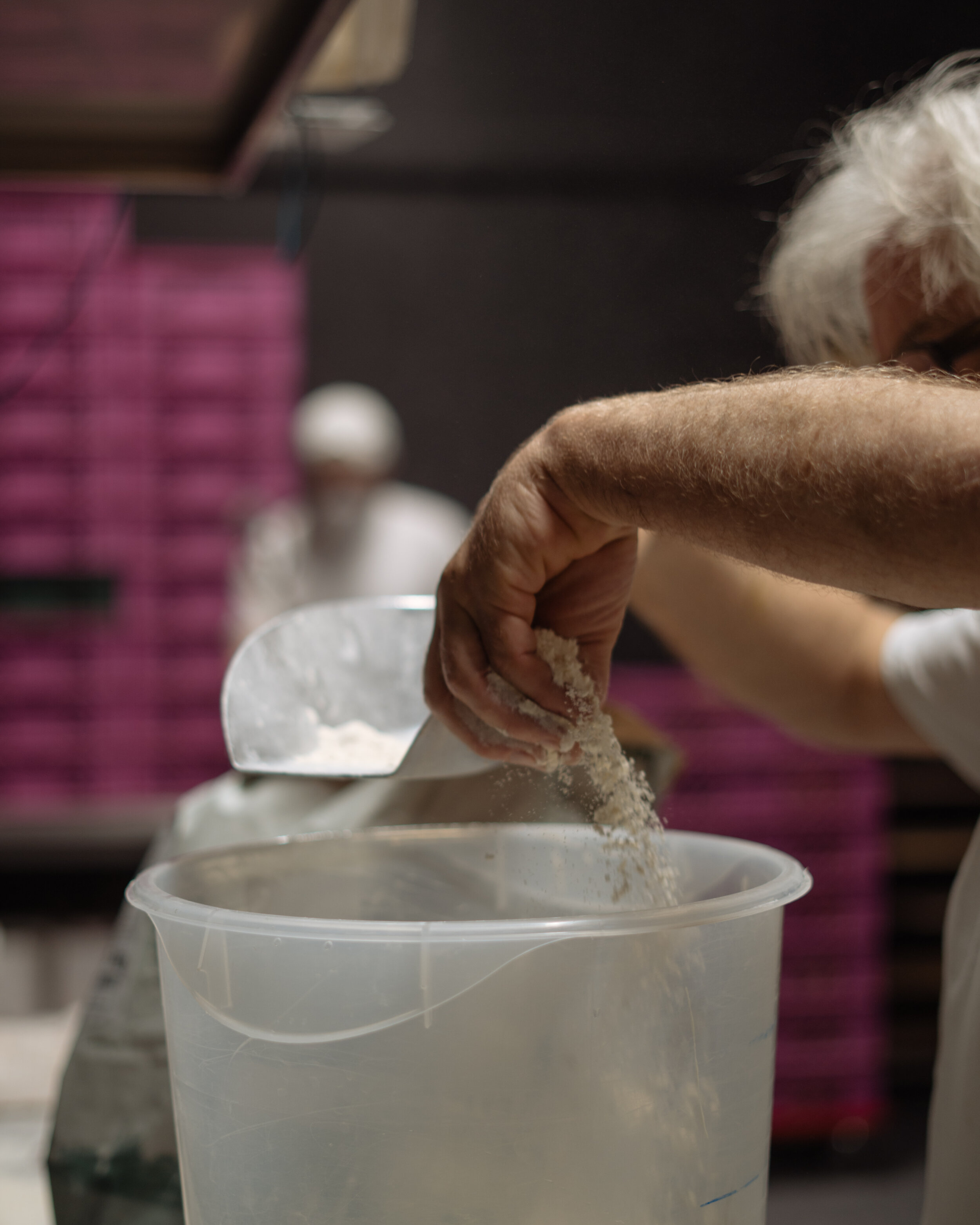
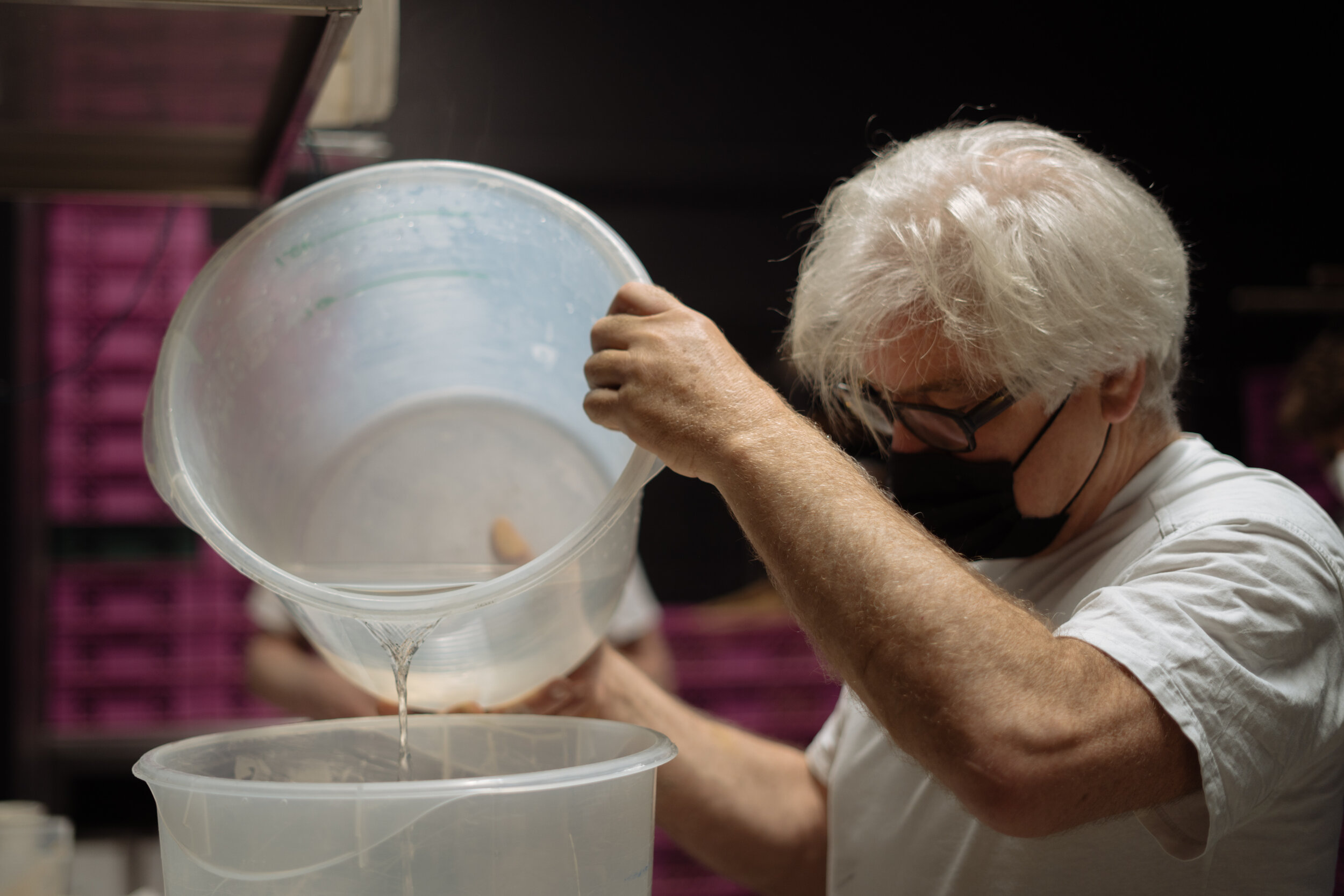
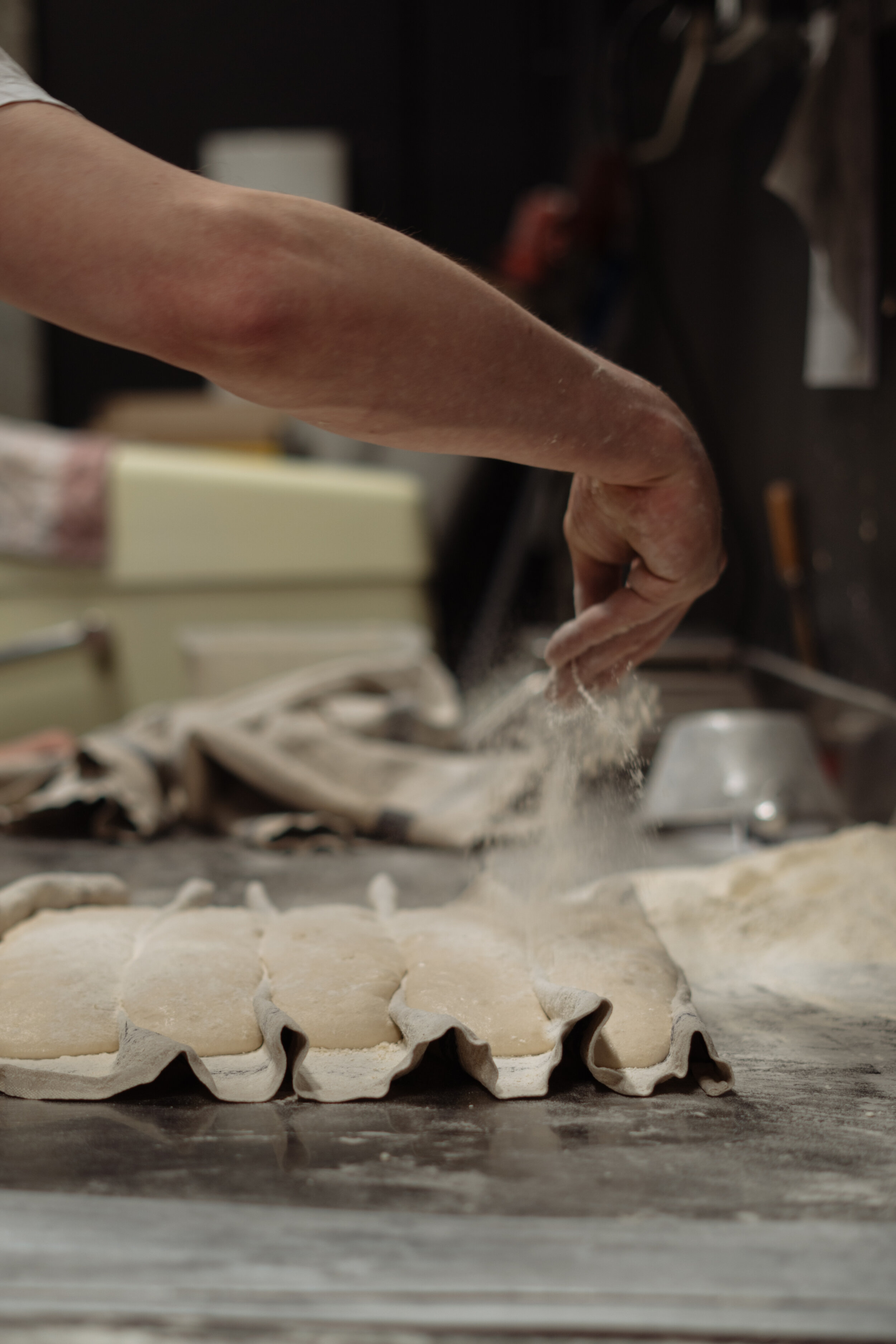
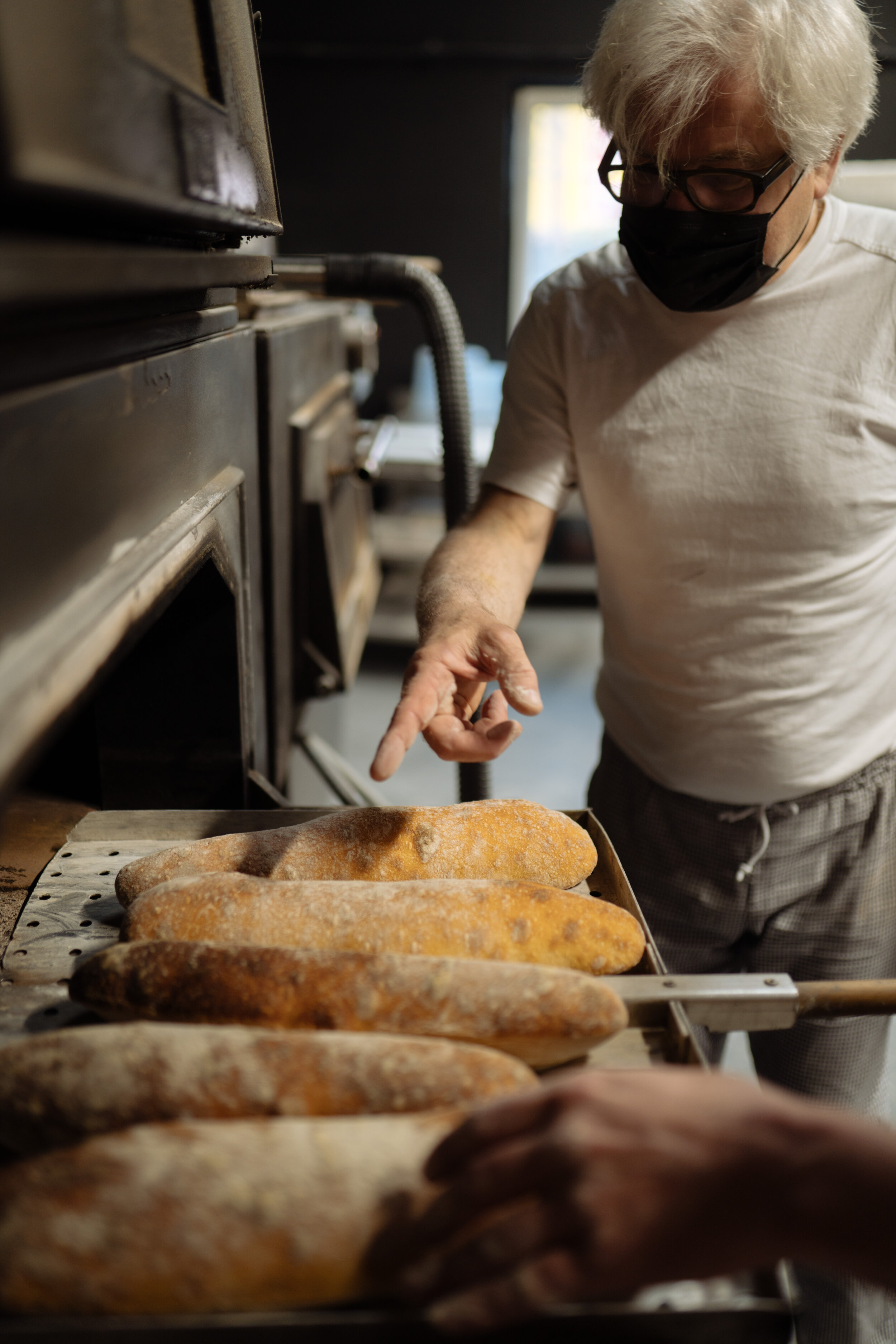
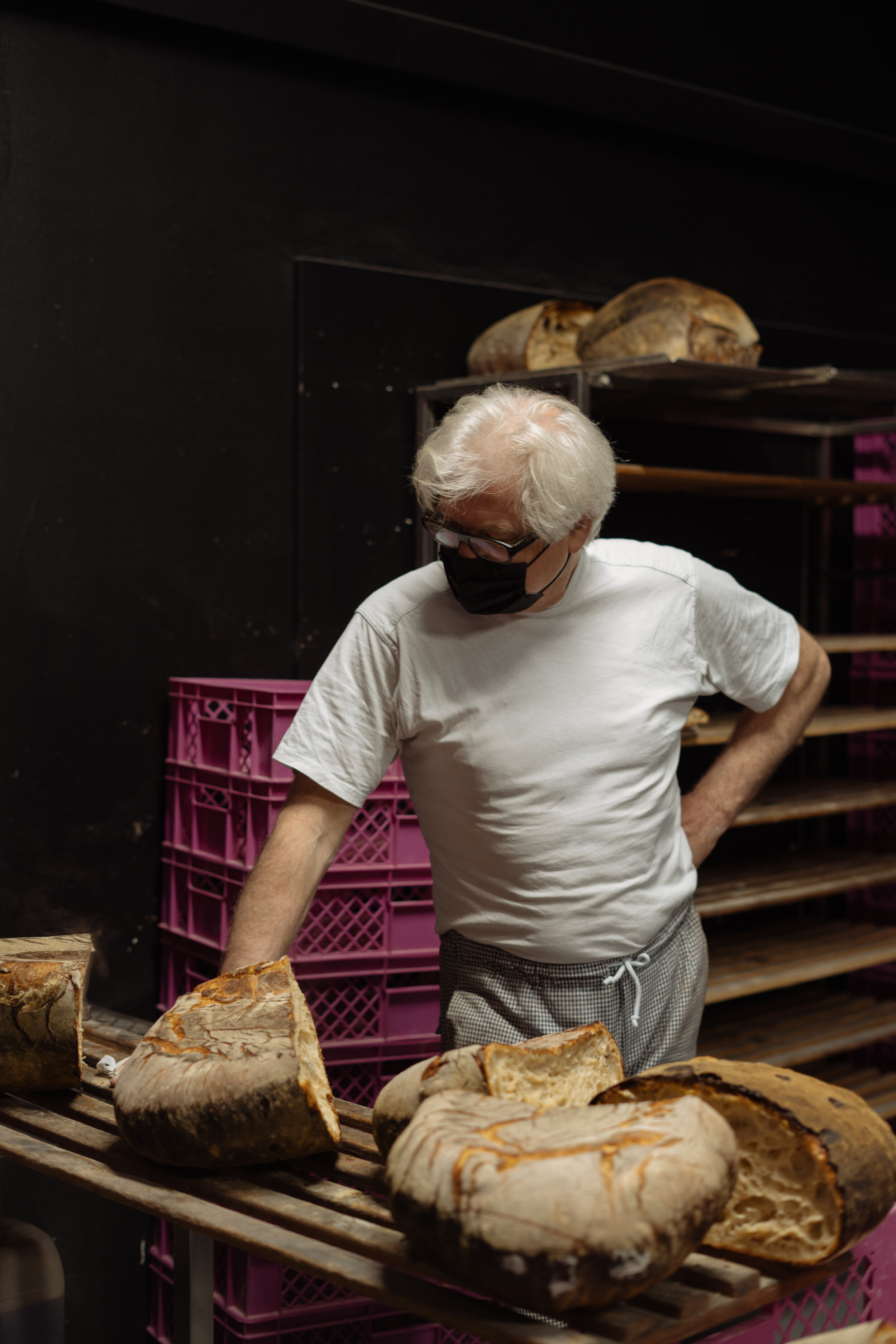
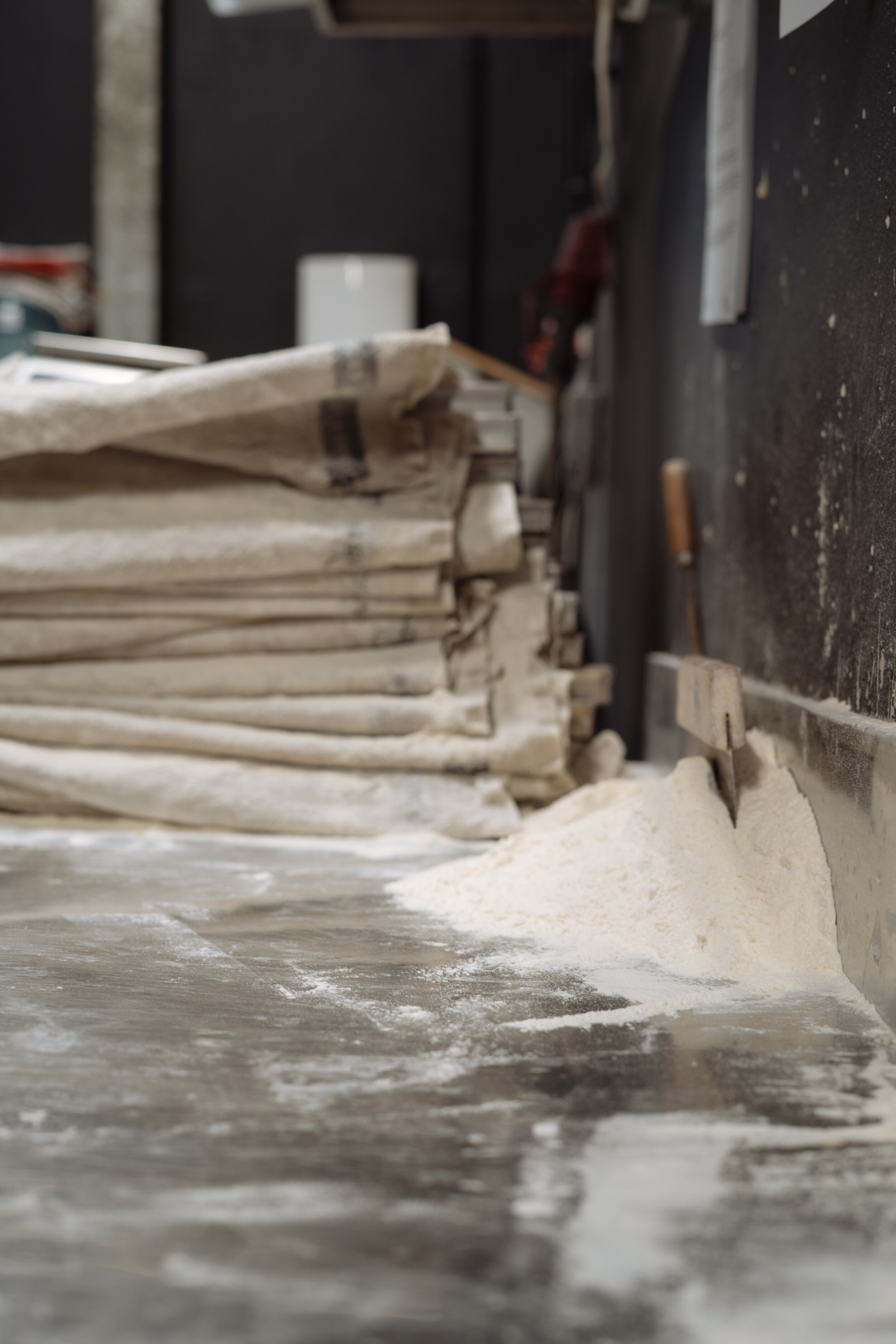
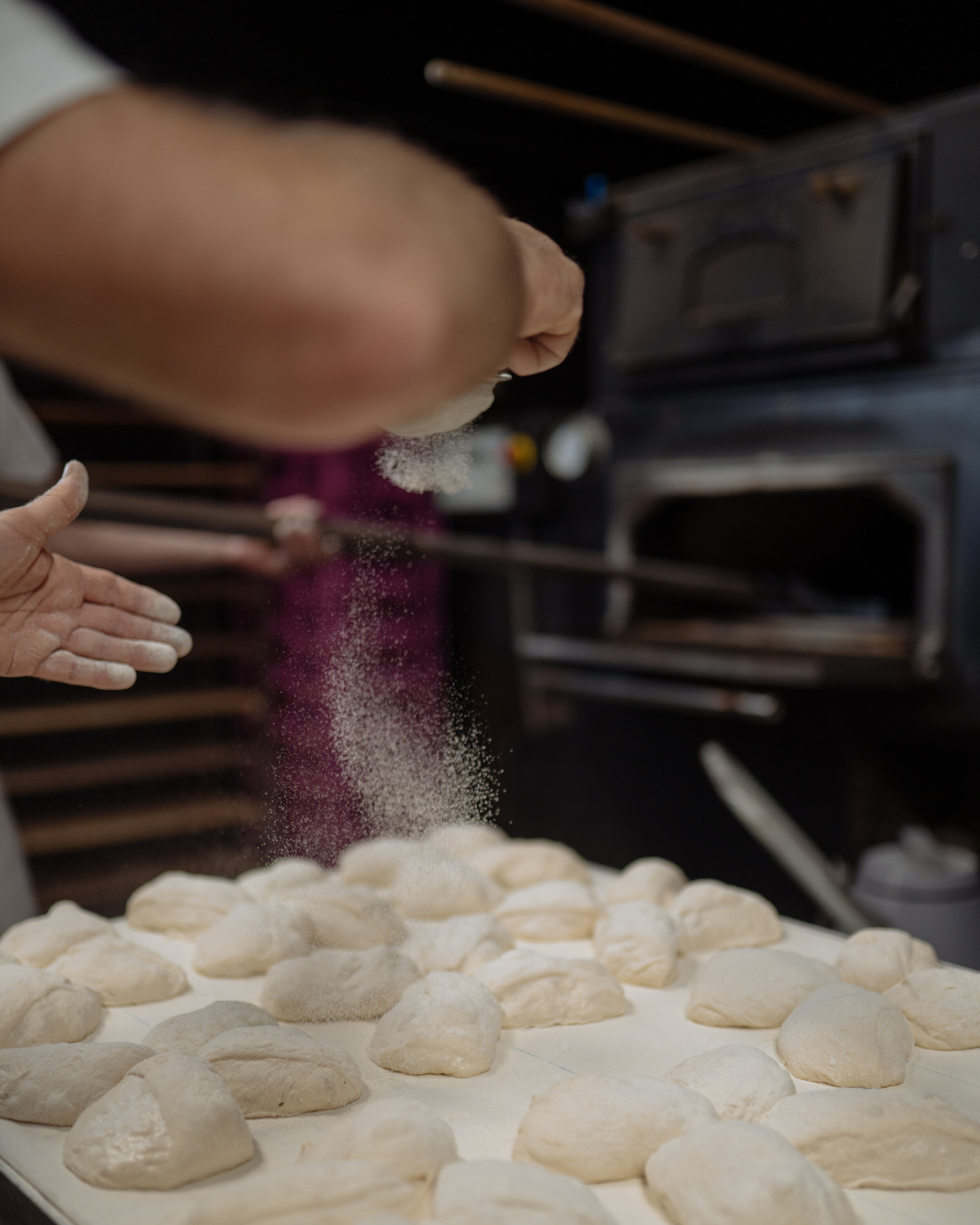
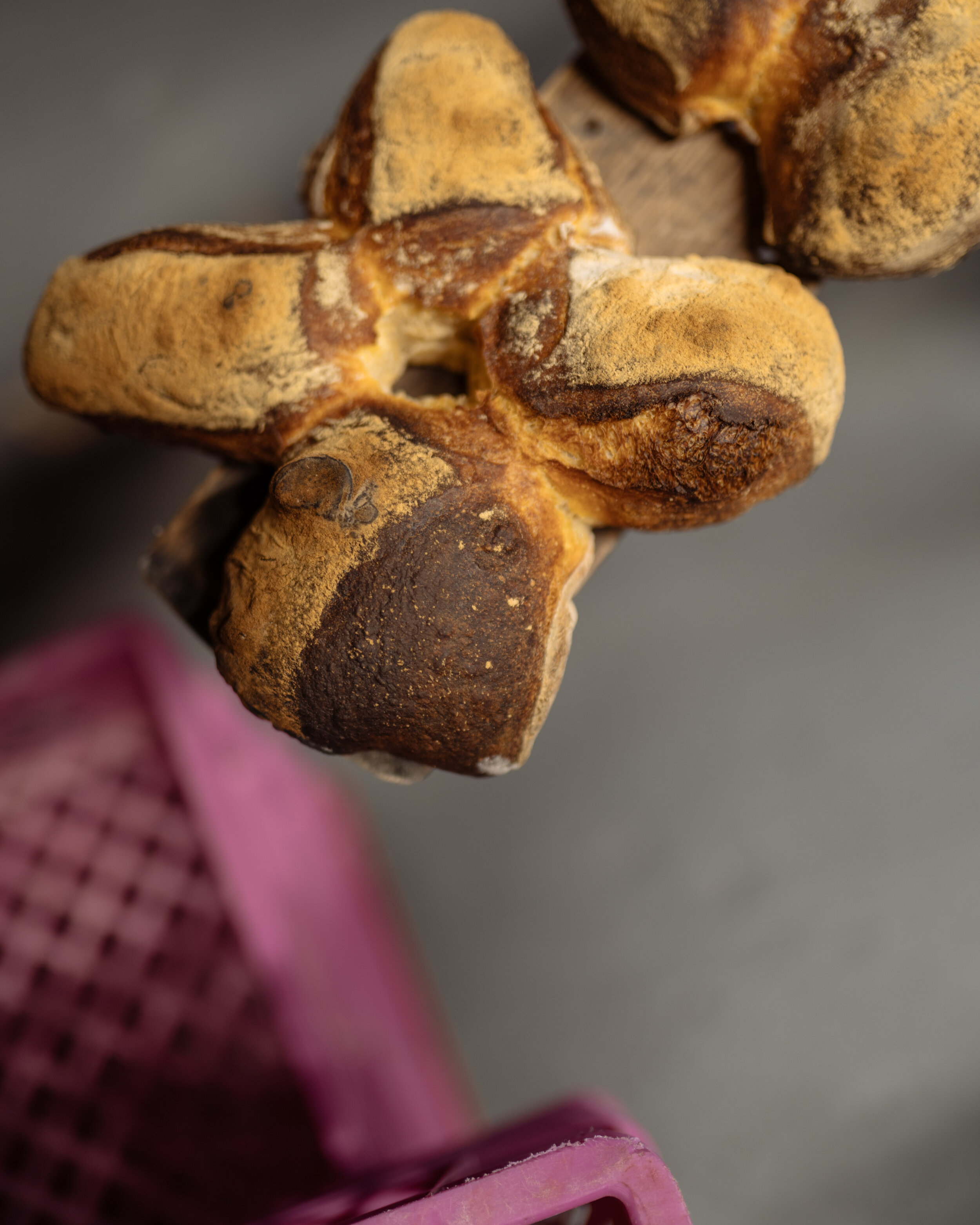
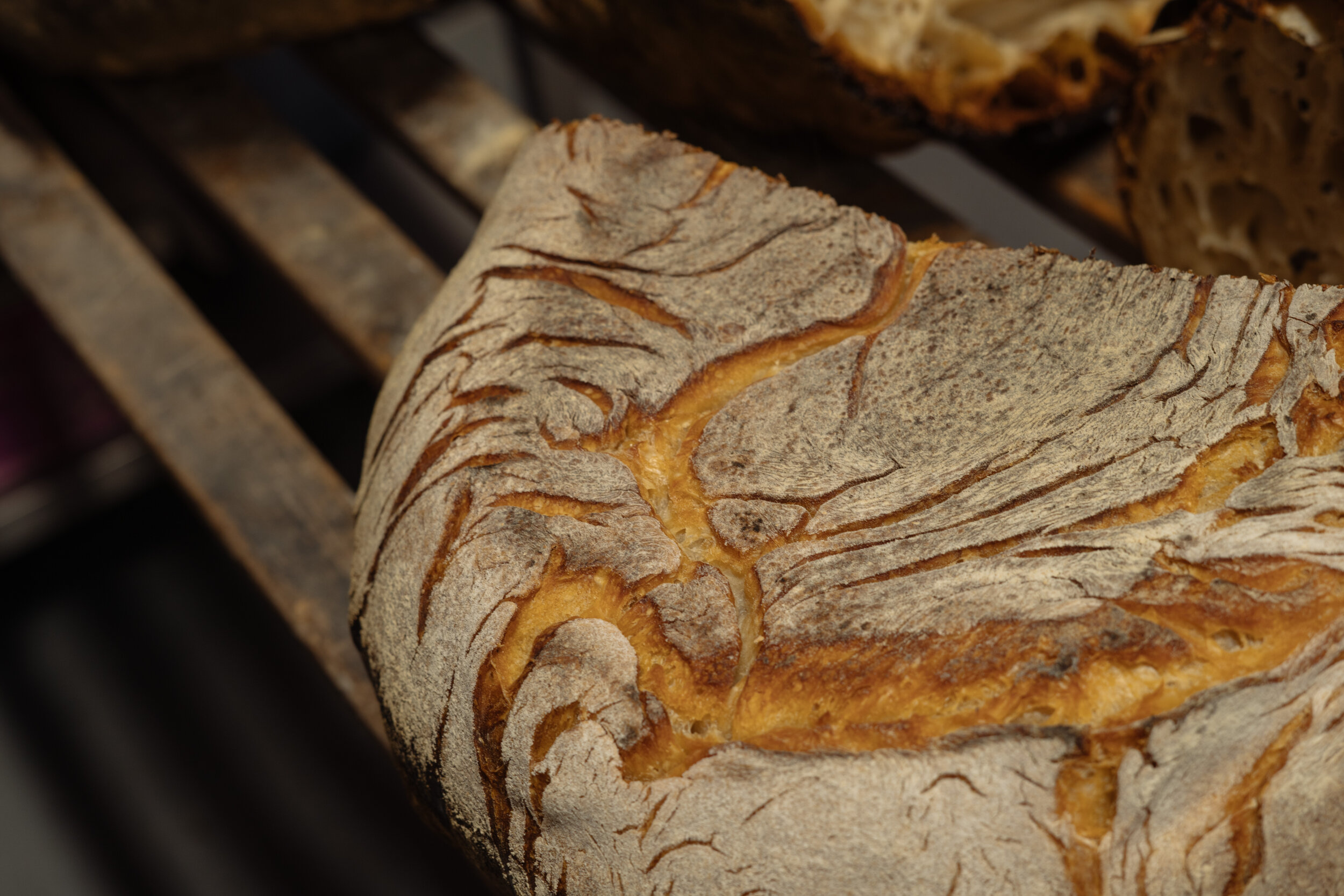












Car interior designer who created some of the most significant cabins of all time, most notably the Porsche 928’s